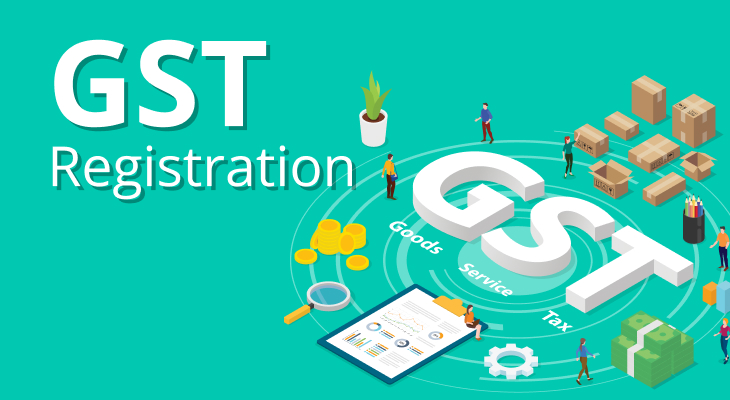How to Browse Singapore GST Registration for Your Business
Wiki Article
The Ultimate Overview to Streamlining the GST Registration Process and Requirements for Local Business Owners

Recognizing GST Essentials
To comprehend the basics of the Item and Solutions Tax Obligation (GST) system, local business proprietors need to first understand its underlying principles and implications. GST is a value-added tax imposed on the majority of items and solutions for domestic consumption. It intends to improve the tax process by changing several indirect taxes enforced by the state and main governments. Under the GST program, companies are called for to gather and sign up tax obligation in behalf of the government, ensuring openness and compliance.One of the vital concepts of GST is input tax credit, which permits companies to declare credit for taxes paid on their acquisitions. Comprehending these standard principles is critical for little service proprietors to browse the intricacies of the GST system and make certain conformity with the legislation.
Eligibility Standards for Registration
Having developed a fundamental understanding of GST concepts, local business owners should now fulfill specific qualification standards to wage the enrollment process. In India, entities participated in the supply of goods or services with an annual accumulation turnover surpassing Rs. 40 lakhs (Rs. 10 lakhs for special category states) are called for to sign up for GST. Furthermore, specific companies such as those entailed in inter-state supply of items, informal taxable persons, and those called for to pay tax obligation under the reverse fee system have to sign up for GST regardless of their turnover. Furthermore, businesses that were signed up under the previous tax program (VAT, service tax obligation, etc) are also mandated to sign up under GST. Agricultural organizations that only provide create out of key manufacturing are exempt from GST enrollment. It is important for entrepreneur to very carefully evaluate their qualification based on these standards to guarantee conformity with the legislation and stay clear of any type of fines for non-compliance.Documents Required for GST Registration

Simplified Registration Process Steps
Complying with the collection and verification of the requisite documents, the enrollment procedure for GST can be browsed through a series of streamlined actions created to help with reliable conformity for small company proprietors. Upon effective confirmation, an Application Referral Number (ARN) is issued, suggesting the completion of the GST registration procedure. By adhering to these streamlined actions, tiny organization proprietors go can successfully register for GST and guarantee conformity with tax laws.Tips for Ensuring Compliance
To maintain regulative adherence and functional stability, attentive oversight and aggressive procedures are crucial in making certain compliance with GST demands for little business owners. Tiny organization proprietors should remain updated with GST laws, submitting target dates, and any modifications in tax rates to stay clear of charges and maintain a great standing with tax authorities. One vital tip for compliance is to maintain exact and in-depth documents of all deals, consisting of costs, receipts, and invoices connected to GST. Regularly resolving financial documents with GST returns can assist in determining and remedying any inconsistencies promptly. Additionally, carrying out periodic inner audits or seeking expert help can ensure that business is adhering to all GST rules correctly. It is additionally critical for local business owners to buy GST-compliant accountancy software that can enhance the tax obligation declaring process and reduce errors. Lastly, attending GST recognition workshops or training programs can improve understanding and conformity with GST laws, eventually benefiting the business in the long run.
Conclusion
In conclusion, small organization proprietors need to recognize the fundamentals of GST, meet the eligibility standards, read here collect needed files, and comply with the streamlined registration procedure steps to guarantee compliance. By simplifying the GST registration procedure and needs, tiny business owners can stay clear of fines and run their services efficiently within the legal structure - Singapore GST Registration. It is important for little organization proprietors to remain certified and informed with GST laws to preserve a successful company procedureTiny company owners looking for GST enrollment must guarantee they gather and submit the essential files to finish the enrollment procedure efficiently. The papers required for GST enrollment generally consist of proof of organization enrollment or incorporation, FRYING PAN (Long-term Account Number) card of the company entity, identity and address evidence of the promoters/partners/directors, pictures, address evidence of the location of company, bank account statements or terminated cheques, and permission forms. Participating in GST understanding workshops or training programs can improve understanding and conformity with GST guidelines, inevitably benefiting the service in the lengthy run.
By simplifying the GST registration procedure and demands, tiny service owners can avoid charges and run their services smoothly within the lawful structure. It is vital for little business owners to remain compliant and informed with GST guidelines to preserve an effective company operation.
Report this wiki page